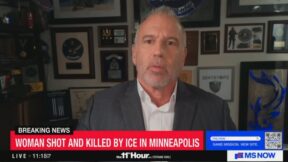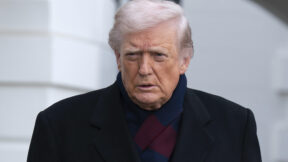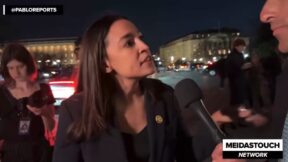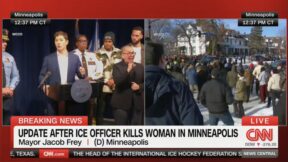Amy Coney Barrett Defends Overturning Roe v. Wade In First Television Interview as a Justice
Justice Amy Coney Barrett defended one of the U.S. Supreme Court’s most consequential decisions in recent years — the overturning of federal protections on abortion rights — in her first television interview since joining the court five years ago.
Barrett spoke with CBS’s Norah O’Donnell in a Sunday interview that was previewed on CBS’s This Morning.
O’Donnell asked Barrett about a portrait of Abigail Adams — wife of the second U.S. President John Adams and mother to the sixth U.S. President John Quincy Adams — that’s hanging in her office.
“I like to think she would be pleased if she could see that — she had five children, she was a mother to many — that I can be simultaneously a mother and a justice on the court,” Barrett said.
O’Donnell asked about the Dobbs decision from 2022, which overturned the longstanding Roe v. Wade guaranteeing women the right to abortion in all 50 states. Barrett joined the majority in voting 6-3 to overturn the nearly 50-year precedent.
“The Supreme Court’s decision in Dobbs gave that decision to the democratic process and to the states,” Barrett said. “It didn’t roll back rights. It didn’t render abortion illegal, unconstitutional, or anything else. And in effect, many states very fully protected abortion rights, more than under the regime of Roe since the time of the decision in Dobbs.”
O’Donnell challenged Barrett, saying, “But it rolled back a federal right to abortion. A constitutional right to an abortion.”
“Well, what it said is that the Constitution had not protected the abortion right under the Due Process Clause. And it said that Roe had been an error and Casey had been an error to hold otherwise,” Barrett said. The 1992 Casey decision reaffirmed the right to abortion, but added an “undue burden” standard meant to balance a woman’s right to choose with states’ rights to protect the unborn.
Barrett said the controversial Dobbs decision led her to obtain a bulletproof vest to protect herself, and that she had to judiciously explain to her seven children why she needed it.
Watch the CBS clip above.





Comments
↓ Scroll down for comments ↓